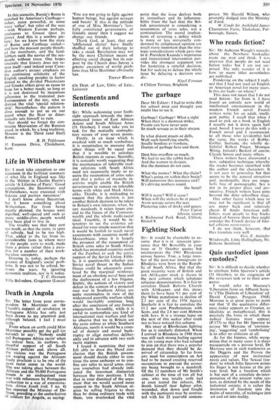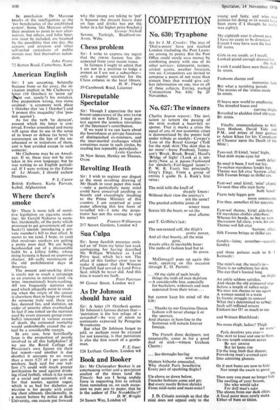Quis custodiet ipsos custodes?
Sir: It is difficult to decide whether to attribute John Sparrow's article (31 October), to the exigencies of the reviewers task or to their arro- gance.
I would refer to Marcuse's 'Liberation from an Affluent Socie- ty' (The Dialects of Liberation' ed. David Cooper, Penguin 1968). Marcuse is at great pains to point out that 'if the qualitative differ- ence today appears as Utopian, as idealistic as metaphysical, this is precisely the form in which these radical features must appear; (P.177) so that for Mr Sparrow to accuse Mr Marcuse of 'envision- ing', 'suggesting' and 'symbolising' is to offer no criticism at all.
As for the hippies, while recog- nising that in many cases it is sheer masquerade on a private level, Dr Marcuse sees in such tendencies as the Diggers and the Provos the appearance of new instinctual needs and values. The 'Sexual free- dom' to which John Sparrow points his finger is not license at the pri- vate level, but a freedom which is but part of a complete de-inter- pretation of the present value sys- tem, as dictated by the needs of the industrial society; it is rather the ingression of freedom into the realm of necessity, of technique into art and ad into reality. In conclusion Dr Marcuse speaks of the intelligentsia as the 'pet beneficiaries of the established system'. Some, like Marcuse utilise their position to point to new alter- natives, but others, and John Spar- row must be included, are haunted by the possibility that one day, the censors and proctors and other self-styled custodians of public morals may find themselves redun- dant.









































 Previous page
Previous page